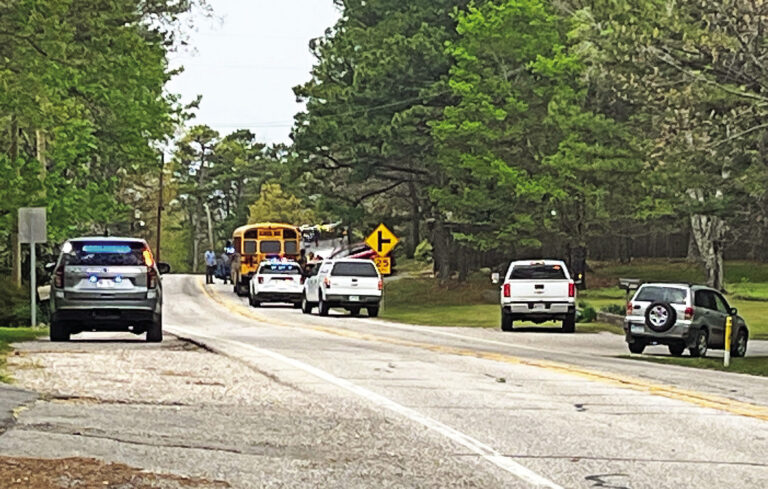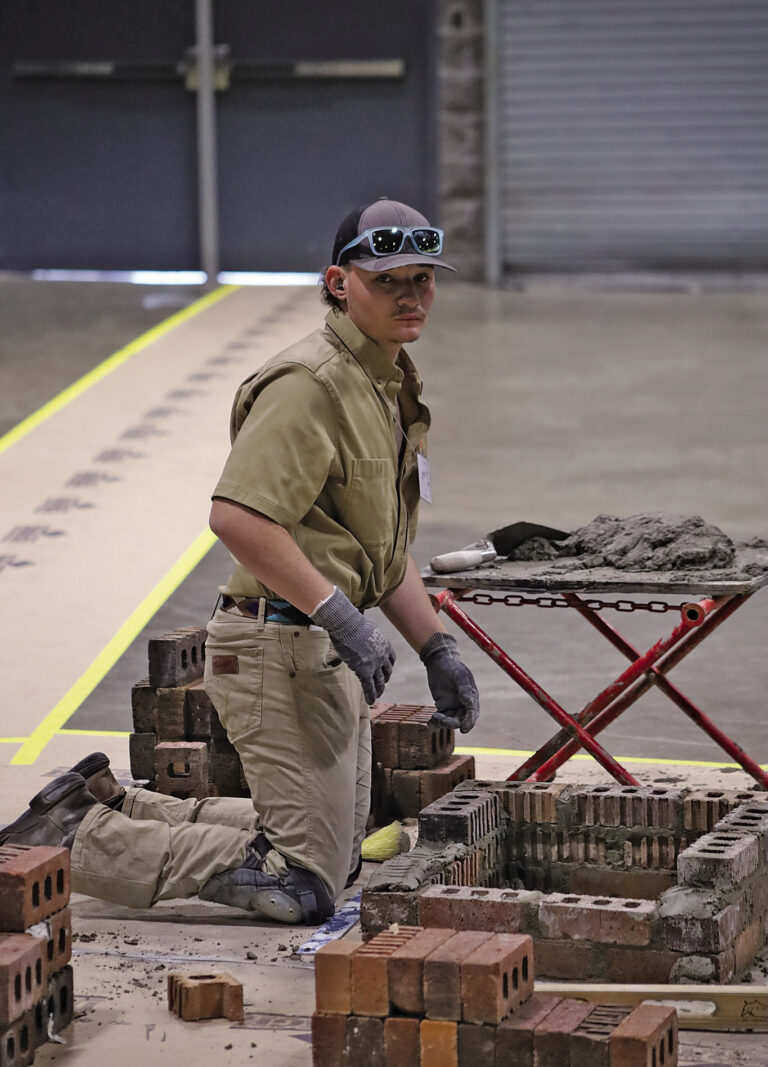Members of the Eureka Springs City Advertising and Promotion Commission continued to voice their concerns over a ballot initiative aimed at repealing the city’s tourism tax, thus doing away with the body that makes decisions on marketing and advertising efforts.
At its monthly meeting held Wednesday, Aug. 28, the commission discussed what was allowed under state law regarding how involved commissioners and CAPC staff could be in a fight against the initiative.
“I wanted to spell it our for everybody to understand: Can we as individuals on a commission, can we support fighting against this petition?” CAPC chair Steve Holifield asked. “What can we do?”
Mike Maloney, executive director of the CAPC, told commissioners that, as volunteers, they have no limitations on how involved they get in opposing the ballot item.
“Employees of the city cannot be politically involved in anything,” Maloney said. “The organization as such would find itself in a very serious divide in doing anything to spend tax money to try to go ahead and defend itself. That said, we also have the legal opportunity to defend ourselves through the court system if it became necessary to do that.
“But, as individual commissioners, on your own, you can do what you want. You are not a paid employee. You’re basically a citizen. Basically, you can go ahead and speak your mind any way you want to.”
Commissioners Robert Schmid and David Avanzino continued their assertion that doing away with the CAPC would not only eliminate the 3 percent tourism tax paid by those who visit restaurants, bars and lodging businesses, but would affect overall sales tax as well.
“I have two hats on, as CAPC commissioner and a business owner,” Schmid said. “… If the CAPC were to go away we would lose more businesses. Currently, there are 11 lodging businesses on the market for sale, and they enclose over 250 rooms. I cannot imagine how many properties would be for sale if the CAPC isn’t here. This town would become a ghost town. My prediction is that we would lose, easily 25 percent of businesses in town, and probably also about a quarter of the population because people like me wouldn’t have a business here anymore. There would be no sense to stay in this town if we don’t have what we need.
“Tourism is our blood, and if we don’t have that, we will die.”
Schmid said it’s important to educate residents that eliminating the CAPC and tourism tax would eventually trickle down to affect public services.
“If the city collects less sales tax because of a reduction in sales, in retail, in lodging, in restaurants, it would also cut our public services,” he said. “We would have problems with the fire department. We would have problems with the safety of our town, with the police department and public works, simply not being able to work as quickly as they can right now. There’s so many things that are not well thought out in the petition itself. … We would not have enough money or no money at all to do events or any kinds of activities. We will never see a parking garage. … Parks will not have money either because they probably won’t have money to hire enough staff to keep up with everything in our town.”
As a lodging owner, Schmid said it’s important for those pushing the petition to realize the legal ramifications of such a measure, “I don’t know if the petitioners are aware that there’s a possible lawsuit waiting,” he said. “As a business owner, I would not hesitate to contact a legal adviser and see what can be done against such a devastating petition. It would be really bad.
“Out of those 158 signatures that were signed on the petition, only 148 made it. And that’s exactly what the petition needed, 148 signatures. I spoke to the county clerk … the petition will be on the ballot. But, if there’s anybody who knows somebody who signed the petition and has concerns now, I invite them to call the election integrity board. … You can explain that you were misrepresented by the petitioner and you signed something that you were not aware of the consequences. That petition can still be annulled even though it will be on the ballot.”
Heather Wilson, another new commissioner, said she was surprised that individuals who asked her to apply to be a part of the CAPC are now pushing for its abolition.
“Several members of the community approached me and asked me to apply for the CAPC, so it’s with a little bit of a heavy heart that I say three of those community members have been very vocal in pushing for the abolishment of the CAPC,” Wilson said. “I take my integrity very seriously, and I take our town very seriously. I want to acknowledge that change is very hard. When a town changes, that’s also hard. … We also need to greet some of this with a bit of understanding that people are grieving for a time that once was … I just remind them … keep an open mind. Those who asked me, give it a chance.”
Avanzino said, with the addition of Wilson and Schmid to the commission, having no vacant seats is a long-awaited feat and shows that the CAPC is on the right course.
“I think this is the first time since I’ve been on the commission that it has been fully staffed, which is incredible,” Avanzino said. “To me, it’s kind of a slap in the face of people who want to get rid of the CAPC, because there are those of us who live in town that are willing to step up, volunteer, do this work for free.”
Commissioner Kolin Paulk said it’s ironic that Holiday Island will have on the ballot in November an initiative to establish an advertising and promotion commission and tourism tax to be voted on the same day as the one to get rid of the same commission in Eureka Springs.
“Holiday Island has 2,358 people and Eureka Springs has 2,189, so almost 150 difference,” Paulk said. “I don’t have to tell everyone here how drastically different the economies of Holiday Island and Eureka Springs are. I can count almost on one hand how many restaurants are in Holiday Island, while there are scores of restaurants in Eureka Springs.
“If people in a town literally next door to us can see the beauty and potential of an A&P, we can, too.”
While there is uncertainty in how the November vote will go, Holifield said he thinks the open dialogue between residents and CAPC is positive. One of those questions that comes from residents involves advertising and why locals may not see ads that are placed around the country, he said.
“You’re already here,” Holifield said. “I lived in Austin [Texas] 12 years ago and I saw ads for Eureka Springs on the Austin TV channels. I’ve never seen one once I moved to Eureka.
“I think there is a disconnect between what the people in town see and what they think is going on. That’s our job to try to figure out. How do we convey to people: ‘This is what’s going on. This is what your money is being spent on and this is how it affects your town.’ … When all this is over, I hope we can stop any citizen in town and say, ‘Do you know what the CAPC does?’ …”
DIRECTOR REPORTS
Maloney told commissioners that there were still $50,000 to $60,000 in deposits that haven’t been credited, but the CAPC had $2,004,116 in the bank.
“We’re down a little bit, but again, I think we’ve got somewhere between $50,000 and $60,00 in deposits to go,” Maloney said.
The commission has still been working on issues related to bank accounts and Quick-Books after then-finance director Scott Bardin resigned without notice in June, leaving staff without access to many financial aspects of the CAPC.
In his tourism report, Maloney said the CAPC’s paid ad campaign had more than 23 million branded impressions and “about 452,000 clicks,” across all platforms.
“Our search engine marketing continues to lead in performance with with a click-through ratio of 27 percent, with the industry average being 7.73 percent,” Maloney said. “I hate saying the industry averages, but what’s happened is our averages are so big right now that it’s just a good thing to be able to know.”
Visits to visiteurekasprings. com have primarily come from residents in Dallas, Tulsa, Chicago, Kansas City and Oklahoma City, Maloney said.


